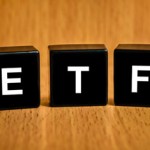Billionaire Hedge Funders Made Money the Old-Fashioned Way

So Institutional Investor’s Alpha put out its 2013 hedge fund compensation ranking today, and I guess we should talk about it because rich people got paid money and that is fun to gawp at. The obvious thing to say about this is that these managers’ pay doesn’t reflect performance, so everyone said it. DealBook:
They earned that hefty sum in a year when most hedge fund managers fell short of the market’s returns. … Some hedge fund titans took home large sums of money even as their investors were left with little to show, in large part because of the sheer size of the assets under management and the fees they charge.
And you can probably guess Gawker’s reaction.
Now, you can quibble that the pay of the best-paid hedge fund managers should be more or less uncorrelated to the performance of the average hedge fund: You pay the good managers not to be average. And in fact the top manager on the list, David Tepper, returned 42 percent last year. But that’s only a partial defense; Ray Dalio is number 10 on the list despite making investors somewhere between negative 3.9 and positive 5.25 percent last year, versus around 32 percent for the S&P 500.1
But here is an important sentence from Alpha:
Those with sizable fortunes — even people who are no longer managing money on a day-to-day basis — can qualify for the ranking based simply on gains on their own capital invested in their own funds.
The thing is, this is not a ranking of payment for performance. This is — partially? primarily? — a ranking of return on capital. If you have money, and you put it in your hedge fund, and your hedge fund has a positive return, you will make money. If you start with a ton of money, and/or your hedge fund has really good returns, you will make a lot of money. Notions of fair compensation for your labor, or appropriate pay for performance, just don’t enter into it. Money begets money, lots of money begets lots of money, and skill in the begetting is a nice bonus.
Don’t take this too seriously, but just for directional fun I did the following fake math exercise:
- Take the top 20 investors on the list, and their compensation as computed by Alpha.
- See how much money they have, as computed by Forbes. (This loses two investors, Jonathon Jacobson and John Griffin, whose net worth I can’t find.)2
- Subtract what they made in 2013 to get how much money they started with in 2013.3
- See how their main fund did in 2013, from various sources.4
- Assume that they were 100 percent invested in their own funds.5
- Calculate their return on capital (that is, their 2013 earnings divided by their computed initial capital).
- Compare that to the return on their fund.
Here is the result:6

So basically it’s what you’d expect. Most of the top hedge fund managers made more or less (1) the amount of money they started 2013 with, times (2) the return on their fund, plus (3) a bit extra for fees.7 There are some outliers, but I suspect they’re driven more by my casual math than by actual massive overcharging.
A few months ago, Gawker’s Hamilton Nolan criticized George Soros for making too much money despite underperforming the S&P:
Here is what George Soros’ fund did last year to earn him $4 billion: it underperformed the S&P 500 index by 8%. In other words, Soros charged his investors fees that are well over 1000% higher than what they could have paid for a simple index fund that would have earned them more money.
Then the awkward parenthetical: “(Update: Soros’ fund manages his own money.)” Soros charged his investors nothing, because he had no investors. What Soros actually did to earn himself $4 billion in a year was to start the year with $19 billion.8 If you do that, and you only underperform the S&P index by 8 percent (for a still pretty healthy return, in 2013!), things work out great for you. And you don’t even have to deal with investors complaining about your fees. I leave it to the reader, or to Gawker, to decide whether “charging investors big fees for underperformance” or “just having a lot of money” is a better justification for making $4 billion in a year.
I guess every financial and economics blogger is required to write a post about Thomas Piketty’s “Capital in the Twenty-First Century,” and I guess this is mine. A key message of that book, and of this Institutional Investor Alpha ranking, is that the major driver of modern inequality is not dispersion of labor income or human capital, but rather dispersion of capital endowments and investment opportunities, and that returns to capital will outpace economic growth and make the rich richer in a way that those who make money from labor can’t compete with. The way to make a lot of money is not from labor income, even the labor of investing other people’s money — successfully or otherwise — at 2-and-20 fees. The way to make a lot of money is by starting with a lot of money and investing it well.
1 Also, random aside, but DealBook says that Dalio’s “Principles” manifesto “espouses a Darwinian capitalism reminiscent of the works of Ayn Rand,” which is not how I’d put it. I guess I can’t really criticize; I’ve never read Ayn Rand. But I have read “Principles,” which I feel like is more about radical self-reflection than, like, killing the poor or whatever Rand was into.
2 Sourcing is just to Forbes profiles, e.g. for David Tepper, you can figure out the rest.
3 This is of course ludicrous: It ignores taxes, and Forbes’s numbers are supposedly as of now, not as of January, so this ignores four months of 2014 income/loss/whatever. Like I said, fake math.
4 I couldn’t find performance for two funds, Renaissance and ESL, so I omitted them from the comparison. Mostly I just eyeballed what was the “main fund”, though for Bridgewater I weighted Pure Alpha and All Weather by assets (80/150 for Pure Alpha, 70/150 for All Weather) to get a blended return of 0.98 percent. Just because. But so like John Paulson “generated returns of 63 percent in his Paulson Recovery fund” but I used 26 percent for Paulson Advantage. Or Robbins’s Glenview Capital Opportunity made 84 percent, but I used 43 percent for his bigger fund. Again, fake math.
5 Not true! (In particular, this ascribes no value to management-company stakes; I don’t know if Forbes does.) And this doesn’t intelligently allocate among their funds; my guess is that for instance Larry Robbins had some of his money in his fund that returned 84 percent (thus his outperformance in my chart), and that John Paulson had some of his money in his own lesser-performing investments (thus his underperformance).
6 Again, Simons and Lampert are omitted from comparison because I couldn’t find 2013 fund performance data — it’s not zero! The average is a weighted average of all eighteen managers; $18.9 billion of earnings divided by $78.3 billion of computed initial capital ($97.2 billion of reported net worth as of May 2014, less that $18.9 billion). The average return on fund is also a weighted average of the 16 fund returns I have, but weighted by the manager’s starting capital (i.e. same weighting as the average earnings except omitting Renaissance and ESL), not by fund size.
7 Again, very fake math, but here are the imputed fees, that is, just (1) actual 2013 earnings minus (2)(A) fund performance times (B) starting capital:

Paulson again seems to be a big negative outlier because he presumably wasn’t entirely invested in Advantage. The total is $3.5 billion for the 16 managers for whom I have performance and wealth data — about 22 percent of their reported 2013 earnings of $16.3 billion.
8 I’m keeping up my pretense that hedge fund managers started 2013 with (1) their current Forbes wealth minus (2) what they made in 2013. Incidentally Soros doesn’t appear on the Alpha list because he manages only his own money. Steve Cohen will be in the same boat next year.
Author: Matt Levine, a Bloomberg View columnist writing about Wall Street and the financial world. He is a former investment banker, mergers and acquisitions lawyer, and high school Latin teacher.
Source: bloomberg





























